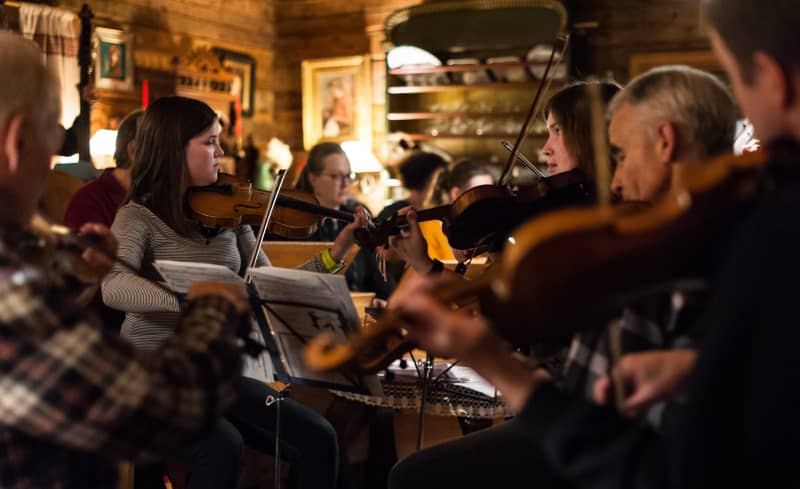
In Kaustinen, a remote work holiday was tested, i.e. combining remote work opportunities with the municipality’s cultural tours. The goal is to develop new tourism or even inspire people to move to the municipality.
The inclusion of Kaustis’s violin playing in the UNESCO list of intangible cultural heritage has accelerated the tourism development of the region.
With the Corona era, remote work became established in many companies, and Kaustinen, who profiles himself as a cultural supporter, now wants to attack this tourism opportunity.
Now, at the beginning of March, five people were offered the opportunity to combine remote work with a living cultural tradition, either as a participant or as an enjoyer of the performances.
Pilots have a choice
The Kaikuma project in the Kaustinen region was responsible for the piloting related to combining remote work and culture.
– The pilot offered both accommodation options and remote workplace options. Intangible cultural heritage was offered in the evenings, says Ojanen.
As part of the pilot week, remote working vacationers had the opportunity to participate in the rehearsals of the Ottoset folk dance group of the Kaustinen youth club and the Aapintuva pelimannyen.
The pilots also got to know the Näppäri pedagogy and the rehearsals or concerts of the Tallari band. On Fridays, there was still an opportunity to participate in a pelemanni tuoki at the bakery. In addition, you were able to get to know Kaustis member correction.
Feedback interviews done, demolition ahead
Kirsi Ojanen is satisfied with the feedback, which was collected both through open interviews and forms.
– Mostly the feedback is encouraging and encouraging. The concept has been praised as excellent, says Ojanen.
A few pilots produced blog posts and streams for the week, one even brought harmonies for Näppäri to use.
*Kirsi Ojanen tells about the remote working vacation trial*
The seeds of the strategy are being studied
Cultural tourism development continues with additional pilots that are still being planned. According to Ojanen, the purpose is to create a cultural tourism strategy.
– These pilots give guidelines on how to continue the development work.
It is a two-year project ending at the end of the year with a budget of 150,000 euros.
– The number of tourists would hopefully increase, because the time of the remote work holiday can be any time. In addition, you can network locally and even think about moving to the locality during a remote vacation, envisions Ojanen.
